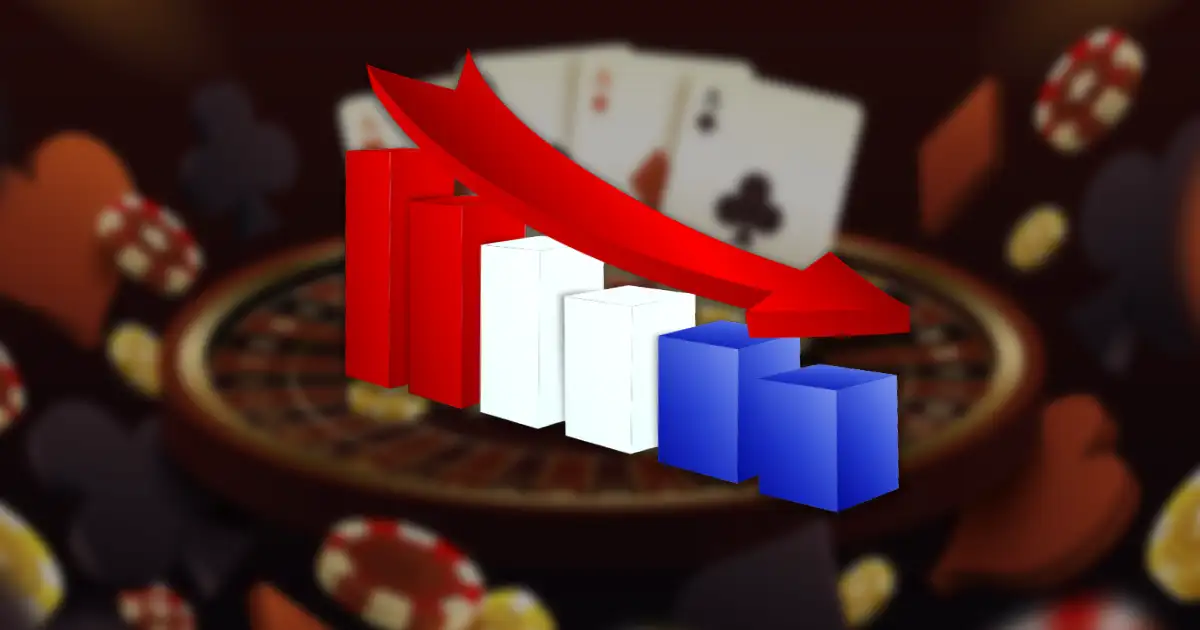2026 Budget Memorandum reports significant shortfall in gambling tax
The 2026 Budget Memorandum in the Netherlands shows that gambling tax revenue is much lower than previously expected. The estimate for 2025 is 23.2 per cent below the original forecast.
Expectations for 2026 have also been revised downwards. The online gambling sector plays an important role in this. Stricter rules and higher taxes are causing growth to stagnate.
Government expects €1.004 billion in gambling tax in 2025 despite rate increase
In January 2025, the gambling tax rate increased. However, the government does not expect higher revenues. The new estimate for 2025 is €1.004 billion. This amount is almost equal to the revenues for 2024, despite the increase in the tax rate.
The expectations for 2026 have been lowered again. In total, the estimate fell by more than 23 per cent compared to previous figures. The government emphasises that this adjustment is not only due to the tax rate. Market figures from 2024 onwards also play a role.
Online gambling yields less than hoped for
Revenue from online gambling is lagging behind. New rules, such as mandatory betting limits, are leading to lower turnover. This is also evident from reports by the Kansspelautoriteit.
Many parties in the sector are concerned. The CEO of the Dutch Lottery warns that players are turning to illegal gambling sites. These sites lack supervision and protection. He says it is worrying that almost half of the market is now in the hands of illegal providers.
The lower revenues are in line with earlier indications that the Dutch state is collecting less money from taxes. This trend is clearly evident in recent analyses of the fiscal situation.
Politicians stick to increased rate despite warnings
Minister Heinen says that the lower tax revenues come as no surprise. The adjustment is based on general market figures, not just reports from providers. The government bases its decision on estimates from the CPB.
Nevertheless, there will be no change in policy for the time being. The State Secretary emphasises that disappointing revenues do not automatically lead to a change of course. The blow will be felt in the budget. In the outline agreement, it was agreed that the rate would rise further, in two steps, to 37.8 per cent.
Higher tax increases the risk of more illegal gambling
According to the Dutch Lottery, high gambling taxes make legal gambling less attractive. Players resort to illegal platforms, where there are no controls and no rules. This poses risks for players, especially if they are unaware that they are operating outside the law.
In addition, the sector’s contribution to society is declining. Part of the revenue from gambling tax goes to sports and charities. Lower revenues also put pressure on this support. The call for tax cuts is growing louder, especially among legal providers who comply with the rules.
The debate about legal and illegal offerings has been going on for some time. The recent merger between VNLOK and NOGA also raised concerns about regulatory pressure and maintaining a fair and safe online gambling market. Björn Fuchs, chairman of VNLOK, has already expressed his concerns about this.
Government sticks to policy despite significant setback
Although the figures are clear, the government is sticking to its course. For the time being, there will be no changes to the Gaming Act or tax rates. However, it is certain that the previously promised legislative proposals on online gambling will not be put out for consultation until the second half of 2026.The State Secretary acknowledges that lower tax revenues are affecting the budget, but does not consider this a direct reason for intervention. The government appears to be gambling on market stabilisation, despite signs that players, providers and institutions are being hit increasingly hard.


